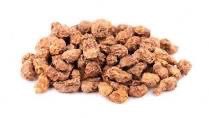

Tiger nuts, also known as chufa, are a nut-like tuber that originates from Africa and the Mediterranean. They can be found in health food stores and specialty markets, but are not commonly used in canine diets. While tiger nuts do offer fiber, magnesium, and protein to dogs, their high fat content may cause health issues such as heart problems, obesity, and pancreatitis. Due to their potentially risky nature, it is important to consult with a vet before feeding them to your dog, and to only give it to them in moderation.
Tiger nuts are a valuable source of fiber that can aid in preventing constipation and promoting healthy digestion in dogs. Additionally, tiger nuts are rich in magnesium, which is essential for proper organ and metabolic function. The protein found in tiger nuts can also contribute to muscle development, tissue repair, and healthy skin and coat.
Tiger nuts contain high levels of fat, which can lead to various health issues in dogs. Additionally, tiger nuts are a choking hazard and have been primarily used as livestock feed. Although there is no evidence that tiger nuts are toxic to dogs, their suitability for canine consumption has not been thoroughly studied.
As tiger nuts are not a commonly fed food for dogs, it is recommended to consult with a veterinarian before introducing them into a dog’s diet. If approved, tiger nuts should be given in moderation due to their high fat content and potential choking hazard.
Although tiger nuts are not toxic to dogs, it is uncertain if they are appropriate for dogs to consume due to their high fat content. Feeding tiger nuts to dogs may lead to health problems such as heart issues, obesity, and pancreatitis.
If you are looking for high-fiber and protein-rich alternatives for your dog, consider sweet potatoes or green beans. With their low fat content and easy accessibility, both options can be a great addition to your pup's diet.
Have you ever tried feeding tiger nuts to your fur baby? Share your experience in the comments! Remember to always prioritize your pet's health and happiness when making dietary decisions.